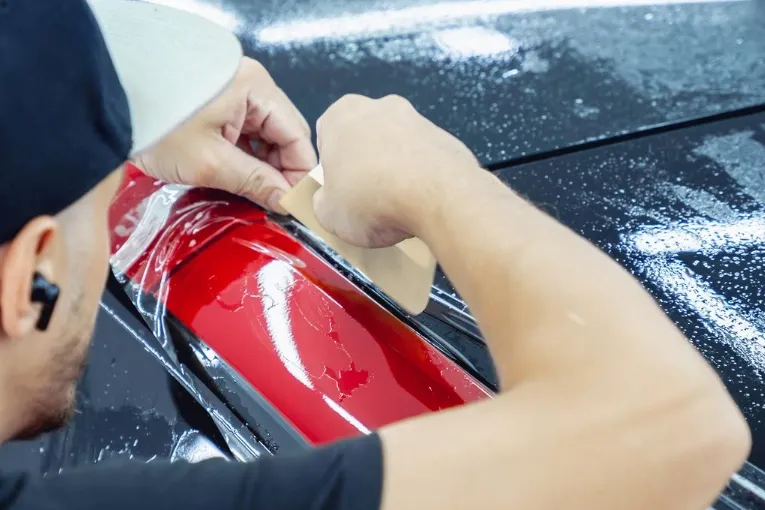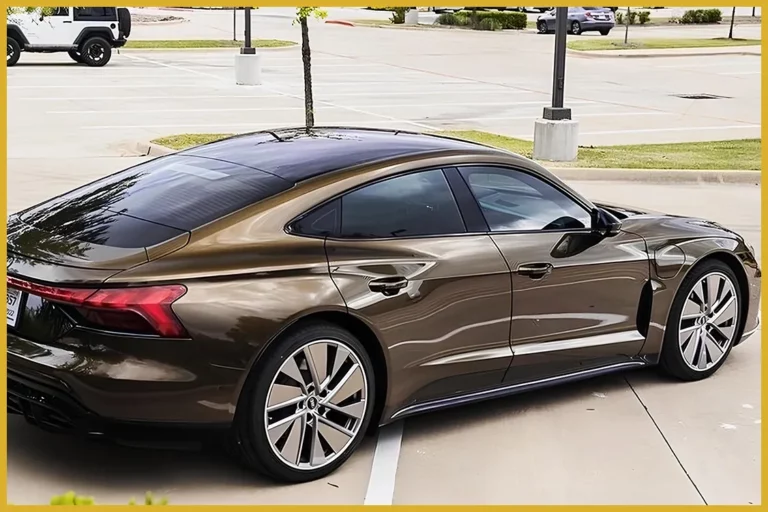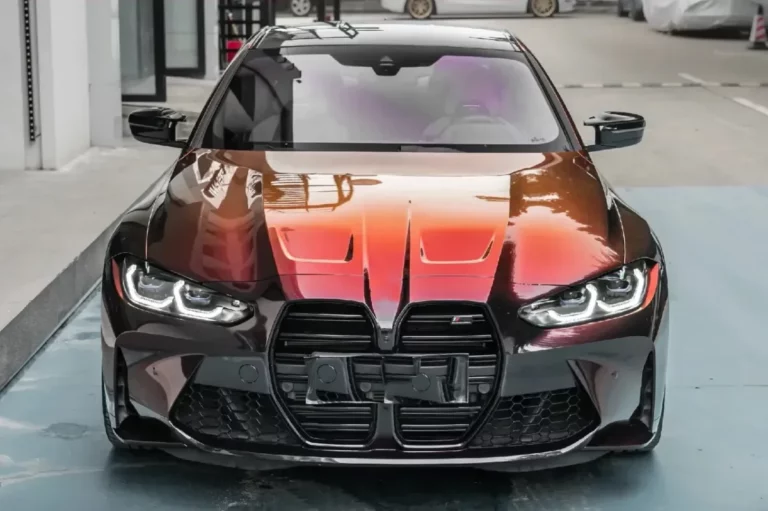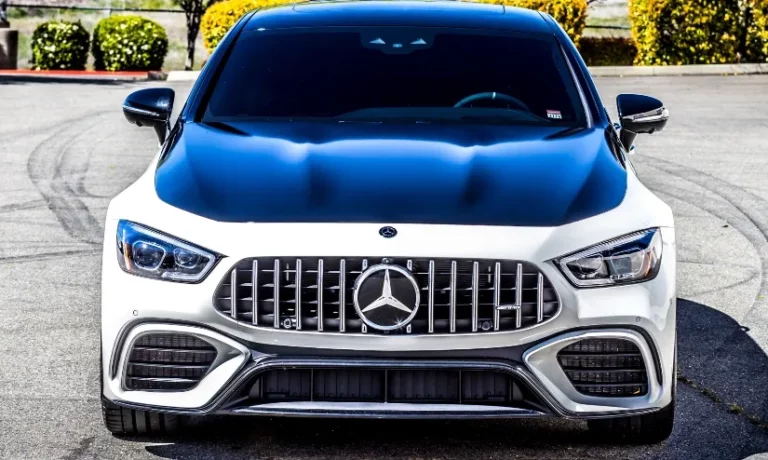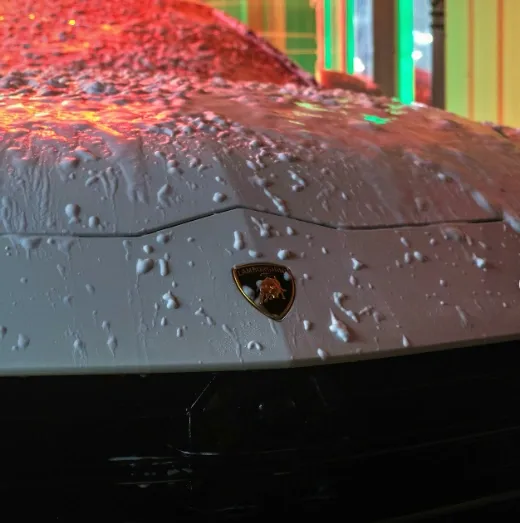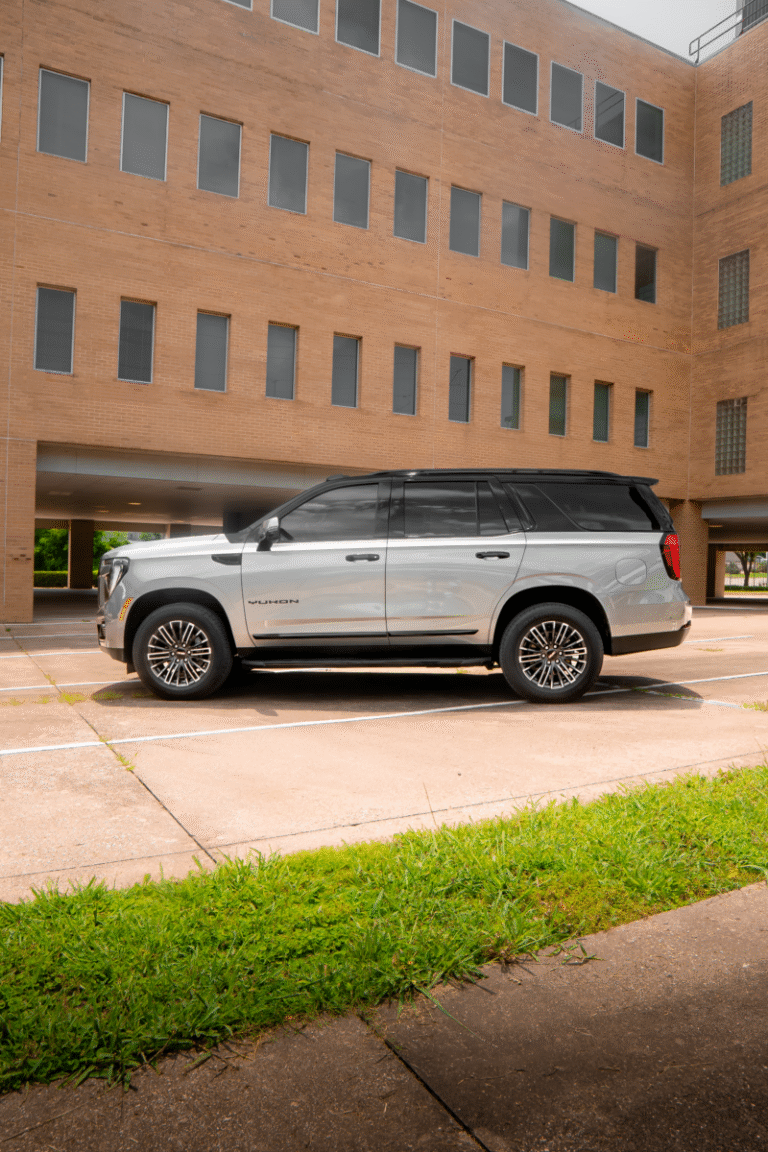Is It Safe to Wrap a Classic Car?
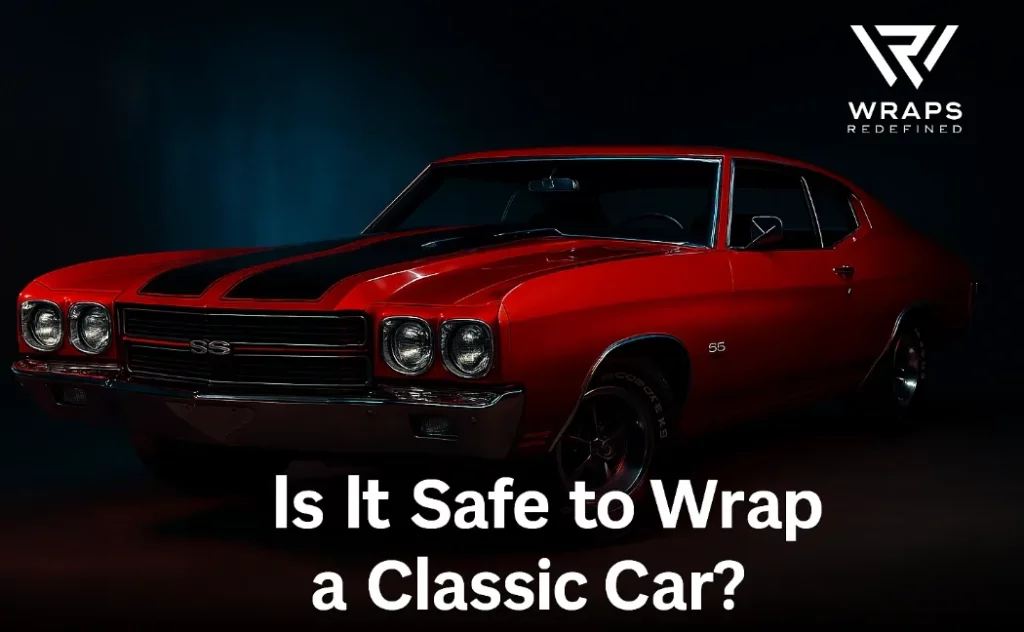
Protecting Vintage Paint While Giving Your Classic a Modern Look
Classic cars are more than just modes of transportation—they’re rolling pieces of history, cherished for their unique design, nostalgic value, and the craftsmanship of their era. For many classic car enthusiasts, preserving the original paint and features is paramount. However, wrapping a classic car with high-quality vinyl has become an increasingly popular option for those looking to change its look, protect its surface, or even add an element of modernity. In this comprehensive guide, we’ll explore whether it is safe to wrap a classic car, discuss the benefits and potential concerns, and offer practical tips to ensure your wrap not only looks great but also protects your prized vehicle for years to come.
In this article, we’ll answer common questions about wrapping classic cars, detail the process and precautions needed, and offer advice from industry experts. We’ll also share real-life examples and case studies from enthusiasts and professionals in the field. Whether you’re curious about adding a bold new color, protecting the original paint, or updating your classic’s appearance without compromising its heritage, read on to discover everything you need to know.
Why Consider Wrapping a Classic Car?
There are several reasons why classic car owners consider wrapping their vehicles. While preserving originality is crucial to many collectors, wraps offer unique advantages that can enhance both the aesthetic and functional aspects of a classic car.
Aesthetic Transformation and Customization
- Personal Expression:
A wrap gives you the freedom to completely change your car’s look without altering the original paint. Whether you prefer a subtle color change or a bold graphic design, wraps provide endless design possibilities.
- Modern Updates:
For owners who want to keep the classic look but add a modern touch, vinyl wraps can update the appearance without the permanence of repainting.
- Temporary Change:
Unlike permanent paint jobs, wraps are reversible. This is particularly appealing if you want to experiment with different styles or if you’re not ready to commit to a new color.
Protection and Preservation
- Protecting the Original Paint:
A high-quality wrap can serve as a shield, protecting the original paint from UV rays, weathering, and minor abrasions. This is especially important for vehicles that are driven regularly or stored outside.
- Maintaining Resale Value:
By protecting the original finish, a wrap can help maintain the value of your classic car. When it’s time to sell, the underlying pristine paint can be a major selling point.
- Cost-Effective Alternative:
Repainting a classic car can be expensive and risky in terms of preserving its historical integrity. A wrap offers an affordable alternative to change the look or preserve the original surface without a long-term commitment.
Versatility and Maintenance
- Easy Removal and Replacement:
Wraps can be removed by professionals without damaging the underlying paint if done correctly. This flexibility allows you to update the look as trends change or if you decide to restore your car to its original state.
- Customization Options:
With various finishes—matte, gloss, satin, or textured—the wrap can enhance the contours and details of your classic car, providing an aesthetic that complements its design.
For more information on wrap options and trends, visit Wraps Redefined. They offer a range of services, from color change wraps and chrome delete to tuxedo wraps and auto restyling concepts.
Safety Considerations for Wrapping Classic Cars
The safety and integrity of your classic car are always top priorities. Here are some key factors to consider when deciding if a wrap is safe for your classic car:
1. Surface Condition
The condition of your car’s surface plays a crucial role in the wrapping process. While vintage cars may have minor imperfections, extensive damage could affect the outcome of the wrap.
- Minor Imperfections:
Small scratches, minor dents, or slight oxidation on the surface are typically not an issue. Professional installers can often wrap over these imperfections, especially with textured or matte finishes that help disguise flaws.
- Severe Damage:
If your classic car has significant scratches, deep dents, or rust spots, it might be necessary to address these issues prior to wrapping. Repairing the surface ensures the wrap adheres properly and looks smooth.
2. Pre-Wrap Preparation
Proper preparation is critical in ensuring a high-quality wrap application. Here are essential steps to take before wrapping:
- Thorough Cleaning:
The car must be completely cleaned to remove grease, dirt, and debris. A spotless surface allows the vinyl adhesive to bond effectively.
- Surface Repair:
Any visible damage should be repaired. This may involve sanding down scratches, filling in small dents, or treating rust areas.
- Final Inspection:
A professional inspection ensures that the surface is smooth and ready for application. This step is especially important for classic cars, where preserving the original look is paramount.
For detailed FAQs and additional tips on surface preparation, visit the Wraps Redefined FAQs page.
3. Quality of Vinyl and Installation
The success and safety of a wrap depend greatly on the quality of the materials used and the expertise of the installer.
- High-Quality Vinyl:
Using premium vinyl is essential. Brands like 3M offer state-of-the-art solutions that are flexible, durable, and offer excellent adhesion. For more information on quality vinyl wraps, check out this resource on 3M Vinyl Wraps.
- Skilled Installation:
The experience of the wrap specialist is vital, particularly for classic cars with complex curves and unique surface details. Trusting local experts who understand the nuances of wrapping vintage vehicles will ensure that the installation is handled with the utmost care.
- Warranty and Support:
Reputable wrap companies often provide warranties and aftercare support, offering peace of mind that your investment is protected.
For competitive pricing and more details on the process, visit the Wraps Redefined Pricing page.
4. Longevity and Maintenance
A wrap’s longevity is an important factor, especially for classic cars that are intended to be preserved for years or even decades.
- Expected Lifespan:
With proper care, a high-quality wrap can last anywhere from 3 to 7 years. Maintenance is key to ensuring its durability.
- Regular Maintenance:
Follow the care instructions provided by your installer, including guidelines for cleaning and protection from harsh environmental conditions.
- Periodic Inspections:
Regular inspections can help catch any issues early, such as bubbling or peeling. Prompt attention ensures that minor problems do not escalate.
By maintaining your wrap properly, you not only protect the investment but also preserve the beauty of your classic car.
The Benefits of Wrapping a Classic Car
Wrapping a classic car can be a safe and effective way to update its appearance, protect its surface, and even enhance its value. Here’s a closer look at the benefits:
Preservation and Protection
- Shielding the Original Paint:
A wrap acts as a protective layer that guards your classic car’s original paint against UV rays, road debris, and minor abrasions. This is crucial for maintaining its aesthetic and resale value.
- Non-Permanent Change:
One of the most significant advantages of a wrap is its reversibility. If you ever decide to restore your car to its original finish, the wrap can be removed without damaging the underlying paint.
Aesthetic Customization
- Personalized Style:
Wraps offer limitless design options. Whether you want a classic, understated look or a bold, modern makeover, the right design can make your car stand out.
- Trend and Tradition:
You can honor the classic look of your car while introducing contemporary elements that reflect current trends. This blend of old and new can be incredibly appealing to both enthusiasts and collectors.
Cost-Effective and Versatile
- Affordable Makeover:
Compared to a full repaint, a wrap can be a more cost-effective way to refresh your vehicle’s look without compromising its vintage appeal.
- Versatility in Design:
From subtle hues to striking graphics, you can change your car’s appearance to match your personality or market trends. Options like color change wraps and chrome delete provide varied aesthetic choices without the need for permanent alterations.
For more creative designs and inspirational ideas, explore offerings such as tuxedo wraps and auto restyling concepts.
The Process of Wrapping a Classic Car
Step 1: Consultation and Vehicle Assessment
The process begins with a detailed consultation. During this phase, the wrap specialist will:
- Inspect Your Vehicle:
Evaluate the car’s current condition, noting any scratches, dents, or areas requiring repair.
- Discuss Your Vision:
Talk about design options, colors, finishes, and any specific requirements you might have.
- Provide Guidance:
Offer expert advice on whether your car needs any repairs before wrapping and outline the expected results.
Step 2: Preparation and Repair
Surface preparation is critical for a flawless application. For classic cars, this step is even more essential:
- Cleaning:
The car is washed thoroughly to remove all contaminants.
- Repair Work:
Any minor imperfections, such as scratches or small dents, are repaired or smoothed out. This creates an optimal surface for the wrap.
- Final Inspection:
A final check ensures that the vehicle is ready for the wrap application.
Step 3: Designing and Cutting the Vinyl
Next, the custom design is created based on your input. The vinyl is then printed (if required) and precisely cut to match the contours and curves of your classic car.
Step 4: Application
The installation is the most visible part of the process. Skilled technicians meticulously apply the vinyl, ensuring there are no bubbles, wrinkles, or misalignments. With careful attention to detail, they work around curves and edges to guarantee a seamless finish.
Step 5: Post-Installation Care
After the wrap is applied:
- Inspection:
The installation is thoroughly inspected to ensure perfect coverage.
- Aftercare Instructions:
You receive guidance on how to maintain the wrap, including cleaning tips and recommendations for routine checks.
- Warranty:
Most professional installations come with a warranty, offering additional peace of mind.
Addressing Common Concerns
Many classic car owners worry about potential drawbacks and risks associated with wrapping their vehicles. Here are some common concerns and expert responses:
Concern 1: Will the Wrap Damage My Classic Paint?
Answer:
A professionally installed wrap, when applied and removed correctly, should not damage your car’s original paint. In fact, by acting as a protective layer, it can actually help preserve the paint underneath. Always choose experienced wrap installers with proven expertise—local specialists in Dallas are well-versed in handling classic vehicles.
Concern 2: What If the Wrap Doesn’t Look Good on a Classic Car?
Answer:
Design plays a crucial role. With custom vinyl wraps, you can achieve a look that honors the classic design while adding a modern twist. Whether you want to maintain a vintage vibe or completely transform your car’s look, consult with your installer to choose a design that fits your vision.
Concern 3: Is the Process Reversible?
Answer:
Yes, one of the most significant advantages of wrapping is its reversibility. If done professionally, the wrap can be removed without leaving any damage, allowing you to restore your car to its original state if desired.
Concern 4: How Long Does a Wrap Last on a Classic Car?
Answer:
A high-quality wrap typically lasts between 3 to 7 years, depending on various factors such as environmental exposure and maintenance. Following proper care instructions can extend the lifespan of your wrap.
For more answers to frequently asked questions on wrapping, check out the FAQs at Wraps Redefined.
Advanced Vinyl Technology and Wrap Durability
Modern vinyl wraps have come a long way in terms of quality and durability. Here’s how advanced technology ensures that wrapping your classic car is safe and effective:
Superior Vinyl Materials
- Durability:
High-quality vinyl films are engineered to withstand harsh weather, UV rays, and minor abrasions. They are resilient enough to last years even when applied to a classic car.
- Flexibility:
The latest vinyl materials are highly flexible, allowing them to conform perfectly to the unique curves and design lines of a classic car without wrinkling or bubbling.
- Aesthetic Versatility:
Whether you’re aiming for a matte, glossy, or textured finish, modern vinyl offers a wide array of choices to suit every design preference.
Innovative Adhesives
- Strong Bonding:
Innovations in adhesive technology mean that the vinyl securely adheres to your car’s surface—even over small imperfections. This results in a wrap that stays in place, maintaining a smooth finish.
- Long-Lasting Hold:
With proper preparation and installation, these adhesives can provide a bond that lasts years, ensuring your wrap remains in excellent condition.
For detailed information on high-quality vinyl options, consider exploring 3M Vinyl Wraps, a trusted resource for top-notch automotive vinyl.
The Future of Classic Car Wraps in Dallas
As more classic car enthusiasts in Dallas, Highland Park, Southlake, and Preston Hollow explore the benefits of vinyl wraps, the industry continues to evolve:
Trends and Innovations
- Eco-Friendly Wraps:
Manufacturers are now producing eco-friendly vinyl that meets modern environmental standards while delivering vibrant aesthetics.
- Custom Designs and Graphics:
Advances in digital printing allow for more intricate and customizable designs. This means that your classic car can have a wrap that is truly one-of-a-kind.
- Improved Durability:
New developments in vinyl technology are constantly pushing the limits of durability and longevity, making wraps an even more attractive option for classic car preservation.
- Enhanced Protection:
With added features like protective clear overlays, modern wraps not only look great but also provide an extra layer of defense against the elements.
Local wrap specialists in Dallas, such as those at Wraps Redefined, are staying on top of these trends to provide the latest technology and design innovations to their clients.
Real-Life Examples and Case Studies
To illustrate the safety and success of wrapping classic cars, here are a few real-life examples from Dallas and the surrounding areas:
The Vintage Convertible Transformation
A classic convertible in Dallas, showing signs of faded paint and minor scratches from years of use, was given a complete transformation with a custom vinyl wrap. After proper surface preparation and minor repairs, the wrap was installed flawlessly. The result was a car that not only looked refreshed and modern but also retained its vintage charm. The owner was thrilled to see that the wrap preserved the original paint underneath, maintaining the car’s collectible value.
A Restored Classic in Highland Park
A well-loved classic in Highland Park was struggling with weathering and oxidation over time. Instead of opting for a full repaint, the owner chose to wrap the car. The high-quality wrap not only rejuvenated the car’s appearance but also shielded the original finish from further damage. The vehicle now stands out on the streets of Highland Park with a refreshed look that still honors its classic heritage.
Conclusion: Your Classic Car’s New Look Awaits
Wrapping your classic car is not only a safe option—it can also breathe vibrant new life into your treasured vehicle. As we’ve explored, a professional vinyl wrap serves many purposes: protecting the original paint, transforming the car’s aesthetics, and even preserving its value over time. With the right preparation, skilled installation, and state-of-the-art materials, even a car with minor surface imperfections can be transformed into a stunning work of art.
When it comes to protecting your classic car’s heritage, local Dallas area specialists at Wraps Redefined are dedicated to making your vision a reality. Their expertise with services ranging from color change wraps and chrome delete to auto restyling concepts and paint protection film ensures that your car is in excellent hands. Through meticulous pre-wrapping inspections, careful surface repairs, and professional application, they guarantee a flawless finish that both enhances and protects your prized classic.
Key Takeaways:
- Enhanced Protection and Preservation:
A vinyl wrap acts as an extra shield against UV rays, road debris, and the elements, helping to maintain your car’s original paint and historical value.
- Aesthetic Flexibility:
With a wide range of finishes—matte, gloss, satin, or textured—you can choose a wrap that conceals imperfections and expresses your unique style without a permanent commitment.
- Reversible Application:
Wraps are removable without damaging your classic car’s paint, allowing you the flexibility to revert to the original finish if desired.
- Local Expertise:
Dallas, Highland Park, Southlake, and Preston Hollow residents benefit from the skilled workmanship of local experts who know the regional climate and vehicle trends, ensuring a long-lasting result.
- Modern Technology and Durability:
Advances in vinyl materials and specialized adhesives mean that even vehicles with minor flaws can achieve a smooth, vibrant look that endures over time.
For more inspiration and to explore a range of wrap options, visit Wraps Redefined. They offer comprehensive services and expert advice through their FAQs and pricing details.
If you’re a classic car owner in Dallas or the surrounding areas, don’t let minor imperfections hold you back from enjoying a renewed and eye-catching look. Contact local Dallas wrap experts today to schedule a consultation and learn how a professional wrap can protect and enhance your classic car.
Ready to Transform Your Classic Car?
Visit us at our office:
7015 Twin Hills Ave Suite 130, Dallas, TX 75231
Call: (469) 285-3302
Wrap your car with confidence and drive knowing you’ve invested in a solution that marries tradition with modern innovation. Your classic car’s new look is just a wrap away—embrace the transformation and preserve a piece of automotive history for years to come.


